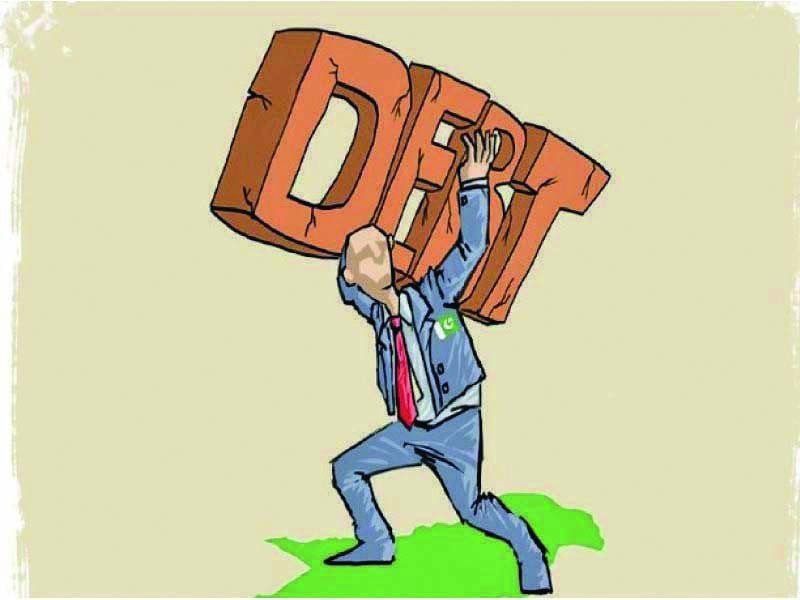Zafar Iqbal
Pakistan’s ongoing struggle with economic instability cannot be fully addressed without a thorough examination and overhaul of its deeply flawed tax system. Characterised by inefficiency, inequity, distortion, and systemic injustice, the current tax regime represents one of the most significant structural weaknesses undermining national economic progress. Its contribution to Pakistan’s fiscal challenges is not just peripheral but foundational—serving as the root cause behind ballooning public debt, chronic budget deficits, and recurring balance-of-payment crises. These fiscal vulnerabilities have consistently triggered a series of boom-and-bust cycles that prevent the country from achieving long-term macroeconomic stability and sustainable development. As the government operates under the scrutiny of the International Monetary Fund (IMF), the focus has shifted from traditional public expenditure-based taxation to more urgent revenue collection intended to stabilise the national economy, ensure fiscal responsibility, and meet the performance criteria tied to the ongoing $7 billion IMF loan programme.
Under IMF oversight, the Federal Board of Revenue (FBR) has been tasked with meeting aggressive annual revenue targets to generate a primary budget surplus, a prerequisite for further financial support from international lenders. In this context, taxation has evolved from a means of funding state operations to a core mechanism for managing the fiscal deficit and containing national debt. To bridge the gap between the IMF-mandated target and actual collection capabilities, the FBR introduced approximately Rs1.3 trillion in new taxes for the current fiscal year. However, these taxes were levied primarily on existing formal sector taxpayers, notably salaried individuals and corporations, who are already disproportionately burdened. This over-reliance on a narrow tax base reveals a troubling reality: the political leadership remains either unwilling or unable to bring politically powerful sectors such as retail, real estate, and agriculture into the formal tax net. As a result, while compliant taxpayers are repeatedly squeezed, the more affluent and politically connected segments continue to operate with minimal fiscal accountability.
This scenario exposes a long-standing dysfunction in Pakistan’s political economy—namely, the state’s inability or unwillingness to tax elite interests. Political expediency and entrenched patronage systems have historically shielded major sectors of the economy from taxation. Despite representing a substantial portion of national income, these sectors are either under-taxed or entirely exempt, thanks to their influence over legislative and administrative processes. Consequently, the government has persistently targeted salaried individuals and registered businesses to compensate for revenue shortfalls, exacerbating income inequality and eroding public trust in the system. This regressive approach not only places an unfair burden on law-abiding citizens but also disincentivises formalisation and productivity, pushing large segments of the economy to remain in the informal sector where they evade taxation with impunity. Such systemic imbalances reinforce a vicious cycle in which weak governance, low compliance, and a narrow revenue base collectively undermine the fiscal integrity and developmental capacity of the state.
The implications of this tax structure on economic efficiency and social equity are both profound and damaging. A progressive and equitable tax regime should ensure that those with greater economic means contribute proportionately more to national revenue. However, Pakistan’s current model tilts heavily toward indirect taxation and offers limited direct taxation of wealth, land, and capital gains. This regressive framework not only fails to achieve redistribution but also hampers investment in productive sectors. By penalising compliance and rewarding evasion, the current system discourages entrepreneurship, disincentivises scale, and distorts the allocation of resources. Informal economic actors, who operate outside the regulatory framework, gain an unfair advantage over formal businesses that must bear higher tax and compliance costs. The result is a stagnation of economic potential, a persistent reliance on external borrowing, and a growing sense of injustice among citizens who perceive the system as inherently biased against the middle and working classes.
Efforts to modernise the FBR and reform tax administration have been ongoing but have faced considerable institutional and political resistance. Digitisation, automation of audit procedures, and the use of third-party data have been proposed as means to improve compliance and reduce human discretion in tax collection. However, these reform initiatives remain in early stages and are often hindered by internal inefficiencies, a lack of coordination between federal and provincial authorities, and widespread corruption within tax administration. Furthermore, attempts to implement these reforms have met fierce opposition from powerful business lobbies that fear increased transparency and accountability. Textile exporters, cement manufacturers, and wholesale traders have all resisted greater scrutiny and data integration measures, thereby obstructing efforts to expand the tax net and improve administrative efficiency. Until the government can strengthen institutional capacity, ensure policy continuity, and depoliticise tax enforcement, these reforms are unlikely to yield substantial results.
Beyond administrative improvements, the normative case for reforming the tax system is equally compelling. A fair and just taxation framework is essential not only for economic development but also for fostering democratic accountability and social cohesion. The repeated imposition of additional levies on the salaried class, without parallel efforts to tax wealthy individuals and sectors, deepens societal inequalities and erodes the legitimacy of the state. If the government genuinely aims to provide tax relief to low and middle-income households, it must first create fiscal space by bringing high-income, low-compliance sectors into the tax orbit. Penalising tax evasion and ensuring uniform application of tax laws are prerequisites for rebuilding public confidence and creating a culture of compliance. Moreover, by reallocating the tax burden more equitably, the state can free up resources for essential social spending, including health, education, and poverty alleviation—areas that remain critically underfunded.
Looking ahead, Pakistan’s path to fiscal sustainability and inclusive growth requires a comprehensive overhaul of its tax policy. Key reforms should include the broadening of the tax base to include under-taxed sectors, rationalising tax exemptions, and shifting from indirect to direct taxation. Equally important is the strengthening of tax administration through capacity building, automation, and anti-corruption measures. These reforms must be accompanied by political consensus and public support, which can only be achieved through transparent policymaking and equitable enforcement. The government must also enhance coordination between federal and provincial authorities to ensure a harmonised tax regime that closes loopholes and prevents revenue leakages.
In conclusion, Pakistan is at a critical juncture where superficial or incremental changes to the tax system will no longer suffice. The ongoing fiscal adjustment program under the IMF provides both a challenge and an opportunity to implement long-overdue structural reforms. By confronting vested interests, prioritising equity, and building institutional capacity, the government can lay the foundation for a more just, efficient, and sustainable fiscal framework. Without these changes, Pakistan will continue to oscillate between crisis and recovery, never achieving the consistent, broad-based growth needed to improve the living standards of its people. The time for decisive tax reform is now—because without it, no economic strategy can truly succeed.














